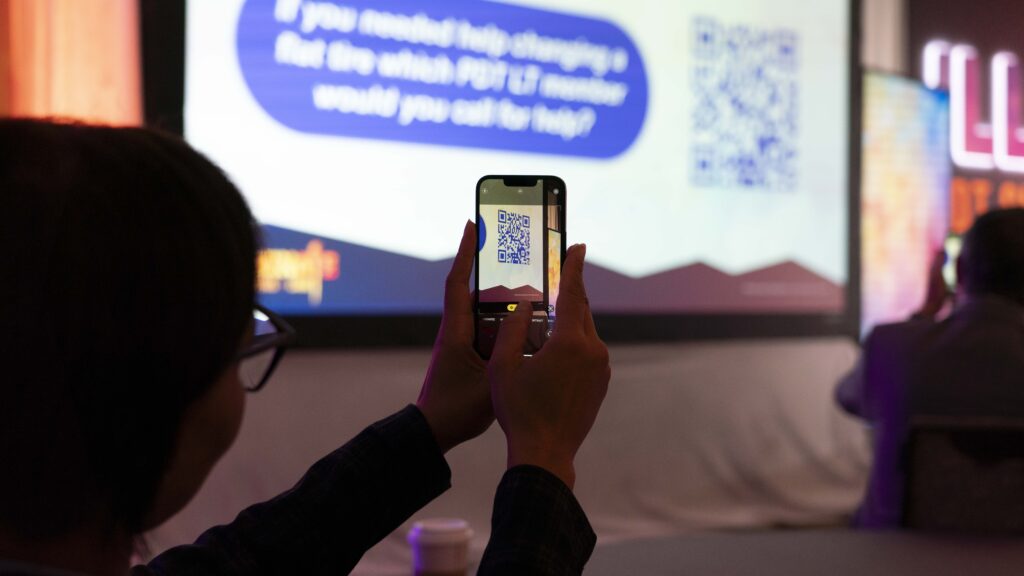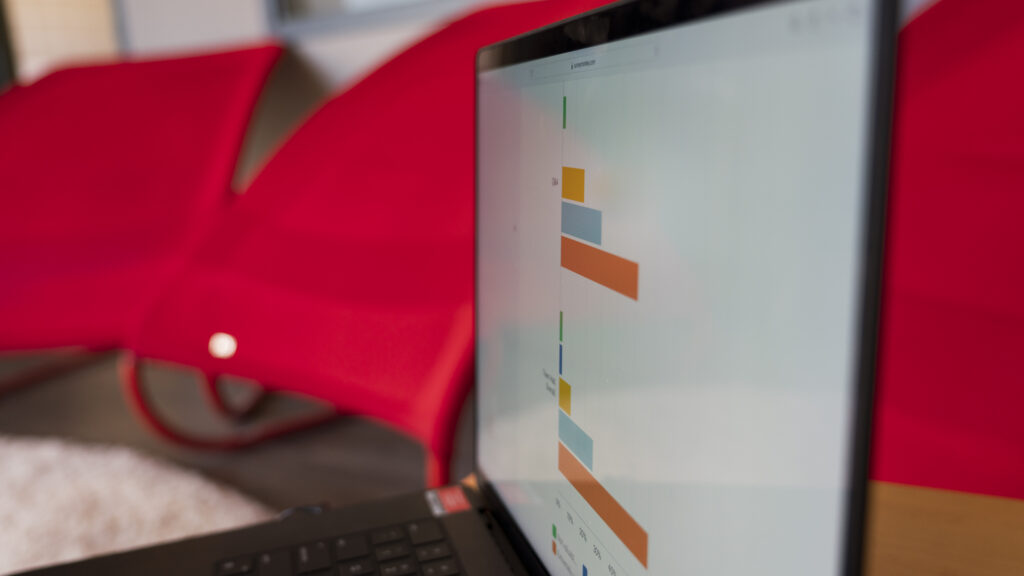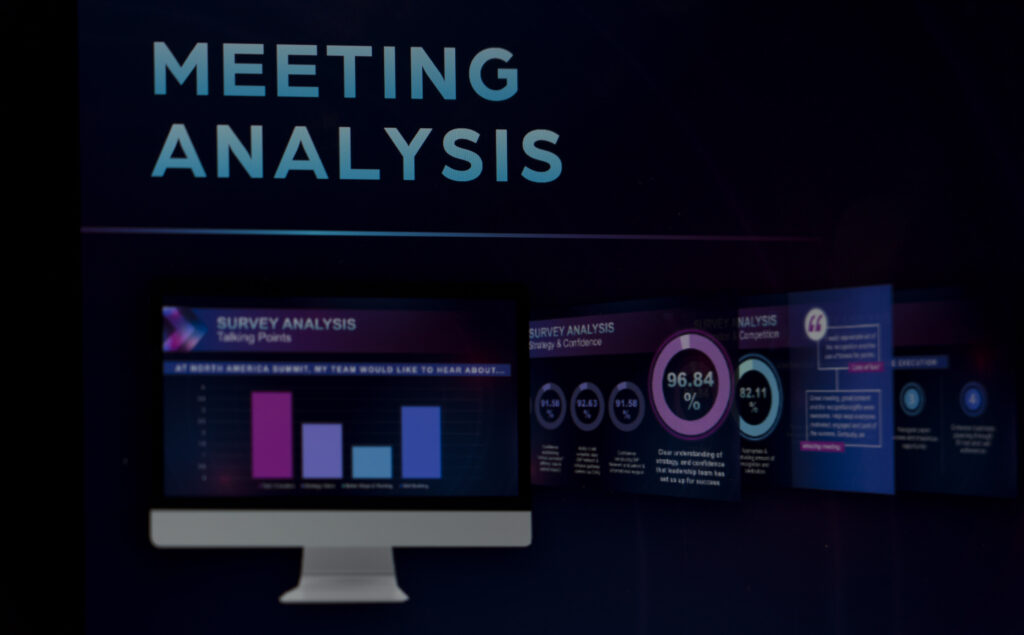
From Survey to Success: Leveraging Post-Event Feedback for Improvement
You just hosted an amazing event! …now what?
Meetings and events are a big investment in your team. They take time, energy, and resources to produce. But how do you know whether the event had the impact you were hoping for? After finishing an event, don’t just send attendees back into their normal routine. Ask them to provide feedback via a post-event survey first.

Value of Post-Event Surveys
We are often asked how to make sure attendees don’t lose the motivation, connections, and skills that were acquired during an event. There are multiple team members and departments who have worked together to produce content, sessions, and activities that hopefully empowered your attendees to achieve certain goals and objectives. A post-event survey is the first step towards evaluating how well the communication strategies and onsite flow achieved those goals. The survey also aligns your teams on a path forward.
You may hear anecdotal feedback from attendees throughout the event – “everything was amazing!” or “the room was way too cold…”. However, this doesn’t provide an opportunity for strategic insights. The responses gathered in a post-event survey can be analyzed and used as the foundation for both immediate and future planning.
ROles that may benefit from the results of a post-event survey:
1.
Session Presenters – gain insight into the key takeaways people had after attending your session. Learn if your message resonated and if attendees retained the information and action items you shared. Use this knowledge when preparing follow-up messages and also when preparing for your next event.
2.
Learning & Development / Training Leads – evaluate the effectiveness of the training workshops and materials. Use this information to create continued training opportunities and to refine workshop engagement strategies at future events.
3.
Marketing Teams – receive instant feedback on new and existing resources, communication strategies, and tools. This better understanding will allow you to provide supplemental resources, focus marketing research efforts, and follow-up as needed to clarify existing messages.
4.
Leadership Team Members – assess the overall effectiveness of the event and see how strategic priorities are being fulfilled. The information gathered in a post-event survey will help you ensure team alignment and evaluate current strengths and weaknesses in order to plan for future growth.
5.
Meeting Planners – leverage survey data to ensure meeting logistics and plans were received well by attendees. This feedback is a great reference when planning future events with the same team or deliverables.
Insights you may uncover:
–
Progress towards KPIs
–
Strategic messaging alignment
–
Presenter and agenda effectiveness
–
Product knowledge retention
–
Training effectiveness
–
Attendee engagement
–
ROI impact
–
Successes and challenges compared to previous event(s)

Designing an Effective Post-Event Survey
It’s easy to generate a few standard questions, but how do you make sure you’re collecting meaningful data?
First, be intentional about the survey questions. Revisit the meeting objectives that were determined at the start of the planning process. Ask questions that highlight the actions, behaviors, and goals that you hope to achieve. Include questions that focus on what you want attendees to know, feel, and do coming out of the event. Be sure to collect relevant demographic data, so your survey analysis can be more robust. This may include attendee’s location, team, role, etc. Be sure to include various stakeholders in the survey question development process to ensure full coverage.
Second, focus on the overall survey design. If the survey is too complex or lengthy, attendees won’t participate. Limit the number of questions shown per page and include a status bar, so attendees can see their progress. Use matrix questions that allow attendees to rate multiple sessions at once. Be sure to include open-ended questions for insights on key takeaways and specific feedback in targeted areas, but the majority of questions should be multiple-choice / rating scale questions. The overall number of questions will be dependent on your event type and priorities.
Third, develop a roll-out strategy. These questions should be solidified before the event, so the survey is ready to be rolled out onsite. A QR code can be shown onscreen during the final session and a link can be shared in immediate post-event communications via meeting app and/or email. Management should remind attendees about the survey to encourage greater participation.
Important Note: make a plan for what to do with the survey results after the event. There is a lot of raw data, so be sure to arrange for data processing and survey analysis. This allows your team to gain deeper insights into the data without having to spend hours pouring through spreadsheets. From there, an executive analysis and summary presentation deck that displays the results and strategic recommendations from a post-event survey is essential. This can be presented to additional stakeholders to report on meeting successes, justify project spend, and plan for next steps.

Integrating Surveys into the Planning and L&D Process
The foundations for an effective event begin during the Strategy phase of a project planning life cycle. The event narrative, objectives, and other strategic initiatives will be the foundation upon which all tactics and meeting deliverables are built.
The event’s CEC (Communication & Engagement Cycle) is developed early in the planning process to ensure solutions are being rolled out continuously before, during, and long after an event. The post-event survey allows you to gather the necessary information to refine your CEC plan further once the event has occurred. There may be targeted messaging or training needs that arise.
It is important to also use the data from post-event survey for future events. These results give you a head start in the planning process, so you can evaluate what to start, stop, and continue doing. Always be sure to share previous survey results with your agency partner, so they can help take your event to the next level.
Conclusion
Post-event surveys are a tool that should be customized and used for events of all sizes. They offer valuable insights that are helpful in the short- and long-term following an event. Keep all stakeholders included in this process, as everyone has something to gain from these surveys.
Plus, hold onto those survey results throughout the year, and use them during your annual review to demonstrate growth and share measurable successes from you and your team!
If you are seeking strategic event communications solutions, contact us at hello@centrifugemedia.com

Leauren Dearmore
Creative Operations Supervisor
Lauren oversees the design team and manages creative operations at Centrifuge Media. She focuses on messaging strategy, process optimization, and cutting-edge design to deliver innovative solutions for clients. Onsite, she leads venue branding, interactive workshops, and immersive training experiences.